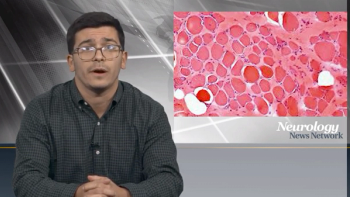
Neurology News Network for the week ending November 16, 2019.

Neurology News Network for the week ending November 16, 2019.

Data from a new study demonstrates valbenazine’s ability to effectively reduce TD symptoms over a long-term period.
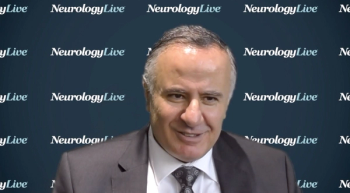
The director of the Epilepsy Center at Cleveland Clinic discussed why cannabidiol should be used cautiously in patients with epilepsy.
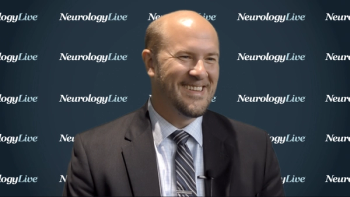
The medical director of the Deep Brain Stimulation Program at Cleveland Clinic discussed how the medical field is beginning to explore the full range of focused ultrasound’s capabilities to aid treatment in Parkinson disease.

Pooled analysis from 3 studies of more than 1000 patients with migraine suggest that galcanezumab (Emgality, Eli Lilly) has good cardiovascular safety and is not linked with vasoconstriction or an increase in cardiovascular adverse events.

An automated deep neural network, SpikeNet, performed at or above the accuracy, sensitivity, and specificity of fellowship-trained clinical experts in identifying interictal epileptiform discharges.

"Mind Moments," a podcast from NeurologyLive, brings you an exclusive interview with Amaal Starling, MD.
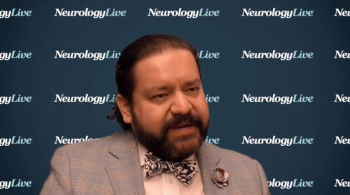
The chief of cerebrovascular disease at Jefferson University Hospitals detailed the importance and growth of mobile stroke units.

Alireza Atri, MD, PhD, medical director of the Banner Sun Health Research Institute, spoke about the importance of open-ended cognitive screening, and the value that early detection and intervention can bring to the table.

Interictal epileptiform discharges on EEG readings had a positive predictive value of 77.3% and a negative predictive value of 70 %, with a sensitivity of detecting spikes prior to epilepsy of 85%.
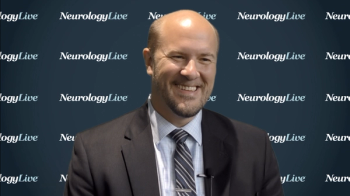
The medical director of the Deep Brain Stimulation Program at Cleveland Clinic spoke to the need for physicians to inform patients with movement disorders of DBS and the options that they may have for treatment.
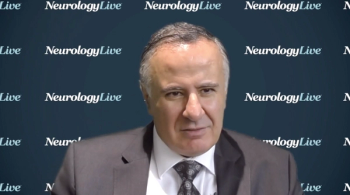
The director of the Epilepsy Center at Cleveland Clinic explained why epilepsy surgery should be recommended and incorporated more.

Patients in small-scale trial experienced a drastic reduction in monthly headache days after just 1 dose of erenumab.
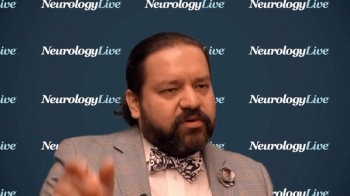
The chief of cerebrovascular disease at Jefferson University Hospitals explains why teaching stroke protocol and using telemedicine can help close the gaps in stroke care.

This is the third safety incident in the IGNITE DMD clinical trial that has resulted in a clinical hold since its inception in 2017.

The director of Centers for Neuropsychology and Neuroscience Research and Traumatic Brain Injury Research at Kessler Foundation spoke to the use of strategy training and how it mirrors real-life situations for patients with MS and TBI.

The medical director of the Deep Brain Stimulation Program at Cleveland Clinic shared his perspective on deep brain stimulation and its impact on the treatment landscape.

An 8 year old boy with genetically confirmed neurofibromatosis type 1 presents with first generalized seizure.

Patients with spinal muscular atrophy types 2 or 3 saw improvements in motor function after receiving risdiplam; data will be presented at an upcoming medical congress.
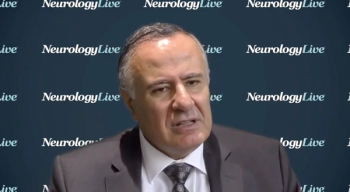
The director of the Epilepsy Center and vice chair of Neurological Institute for Strategy and Development at Cleveland Clinic detailed how researchers are working to utilize a biomarker to enhance epilepsy surgery.

Study findings have shown sustained improvements in seizure-freedom rates and functional outcomes in a cohort of adults that mirror prior findings in pediatric populations.

The comprehensive aggressive migraine protocol (CAMP), combining DHE infusion and multidisciplinary care, significantly reduced headache intensity and frequency among other measures in a small group of patients.
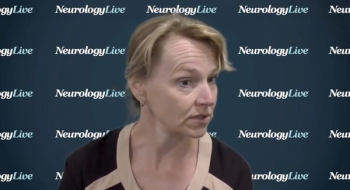
The associate professor at Leiden University Medical Center detailed how palliative care can be used more effectively in patients with dementia.

Neurology News Network for the week ending November 9, 2019.

EIP Pharma also announced results from the REVERSE-SD study that examined neflamapimod in early stage Alzheimer disease.

The robotic platform used in various neurosurgeries was identified for a class 1 recall due to a software error which can lead to robotic arm malfunction.

The director of the Sleep Disorders Research Program at Cleveland Clinic Lerner College of Medicine provided her perspective on the differences in OSA prevalence for men and women and how adherence to CPAP remains a challenge.

The medical director of the Deep Brain Stimulation Program at Cleveland Clinic shared his insight into the current state of affairs in the Parkinson disease treatment paradigm.
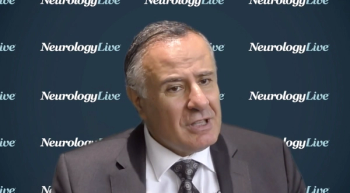
The director of the Epilepsy Center and vice chair of the Neurological Institute for Strategy and Development at Cleveland Clinic relayed his excitement for a new advanced imaging tool that could change how epilepsy specialists diagnose and treat the disease.

The phase 2/3 trials will end after a futility analysis suggested that the drug is not likely to show a clinical benefit.